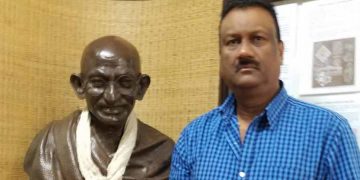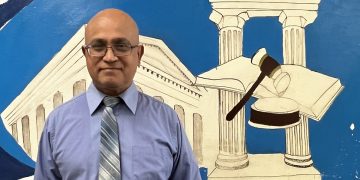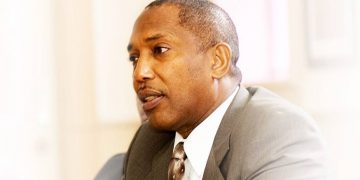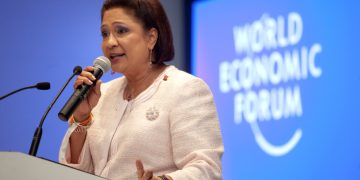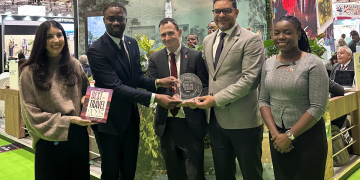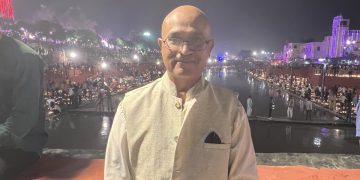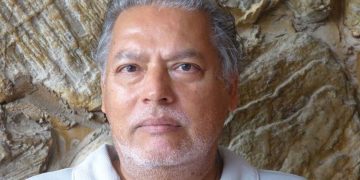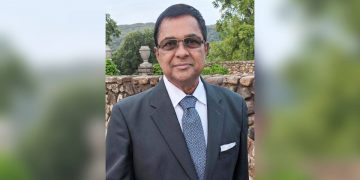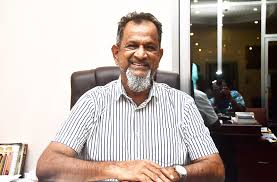Dear Editor,
American economic sanctions (including revocation of visa of politicians and business people) — financial restrictions — have been around for decades but have assumed a more prominent role in recent USA’s relations with other countries especially regarding Guyana and other countries in the Americas and the Caribbean. The US and other developed countries have tremendous leverage within the global financial system to impose sanction on anyone or nation. It is a tool of USA to address threats to American national security and of democracy in a targeted state as well as to crack down on corruption, among other justifiable reasons. It is intended to deter certain behavior. But there are concerns on unintended consequences and impact on innocent parties, such as businesses or individuals that have no connection to the activities of the sanctioned. And it violates sovereignty of a nation and natural rights of people. As pointed out by the public in encounters all over country in recent weeks, there is ethical as well as judicial problems posed by sanctions. Do individuals who are sanctioned treated fairly, and do they receive due process? Are their fundamental rights violated? Due process is a basic principle of American natural rights as enshrined in the constitution. It is a principle in which individuals accused of a crime or wrong doing was or is informed about it and has or had an opportunity to mount a defense.
The above questions were raised by Guyanese at home and in the diaspora in widespread engagements with them. Critical comments were also made on whether the Guyana government should impose sanctions (punishment) on Guyanese who are sanctioned by a foreign power if they were not accused and or convicted of a wrong doing in home jurisdiction, Guyana.
These questions and comments were specifically raised in reference to well-known businessmen Messrs Azrudin (son) and Nazar (father) Mohamed who were sanctioned by USA last June, among unverified others. The Mohamed’s are well known as philanthropists, and Azrudin is very popular with a large following on social media and on the ground among the less fortunate who have nudged him to enter politics to help make their lives better. Nazar contested and won a traditional PNC seat for PPP that the party never won in local elections.
Social media is replete with rumours of dozens of Guyanese politicians and business persons who were similarly sanctioned. The public feel it is fair to raise the issue of due process. It is not known whether any of the sanctioned were given notice of allegations, a hearing, and an opportunity to challenge allegations. American laws do not allow for such rights to foreigners accused of wrong doing and residing abroad. The US government is empowered to cancel visas and or impose economic sanctions on businesses and or their owners at any time. Is it fair? Shouldn’t accused be subjected to presumption of innocence and fair trial – justice as an aspect of democracy and equality for all.
 The Mohamed’s were not accused of any wrong doing by the Guyana government. But their licenses relating to several businesses were revoked. They were also forced to close bank accounts. Is that fair? The sanctions have tarnished their reputation and disrupted their businesses; the latter are shuttered and hundreds have lost their jobs. The affiliated businesses provided employment to a couple hundred, contributed large amounts of taxes to the treasury, have helped to grow GDP, and helped many among the poor with charitable contributions. Nazar Mohamed is also known to have contributed significantly towards the restoration of democracy in 1992 and in deterring election fraud in 2020; he was very active behind the scenes combating rigging. Should innocent workers be penalized for actions of the sanctioned? It is also noted that publicly announced sanctions have affected association of the sanctioned with fellow business persons, relatives, and friends, taking a psychological toll, in addition to a financial one, on many. Their immediate families are also distressed.
The Mohamed’s were not accused of any wrong doing by the Guyana government. But their licenses relating to several businesses were revoked. They were also forced to close bank accounts. Is that fair? The sanctions have tarnished their reputation and disrupted their businesses; the latter are shuttered and hundreds have lost their jobs. The affiliated businesses provided employment to a couple hundred, contributed large amounts of taxes to the treasury, have helped to grow GDP, and helped many among the poor with charitable contributions. Nazar Mohamed is also known to have contributed significantly towards the restoration of democracy in 1992 and in deterring election fraud in 2020; he was very active behind the scenes combating rigging. Should innocent workers be penalized for actions of the sanctioned? It is also noted that publicly announced sanctions have affected association of the sanctioned with fellow business persons, relatives, and friends, taking a psychological toll, in addition to a financial one, on many. Their immediate families are also distressed.
The Mohammed’s are liked by a significant chunk of the population. They are known to have done a lot of charitable activities and their beneficiaries have queried the sanctions. They helped many as found in random surveying. Several individuals have praised their generosity. It is noted that hardly any businessmen have been as kind as them in recent years, assisting varied causes from religion to feeding the poor to education to housing to health, and more. They ask is it fair to target them? The Mohamed’s have sympathy of and support from many people.
Critics of sanction policy say that those who were sanctioned should have been warned about their actions and if unwanted behavior persist, then they could have been sanctioned. The public also notes that some egregiously corrupt business folks (and government officials) who should be sanctioned have been left untouched.
The public is divided on sanction with some suggesting that the US government should re-examine aspects of the sanctions and that the Guyana government should look at how they negatively affect the social, economic, and political rights of the Mohamed’s and other Guyanese. They note there is potential for abuse. The public is worried that politicians could use sanction as a weapon against political opponents or rivals including those pondering to seek elective office.
Yours truly,
Dr. Vishnu Bisram
















